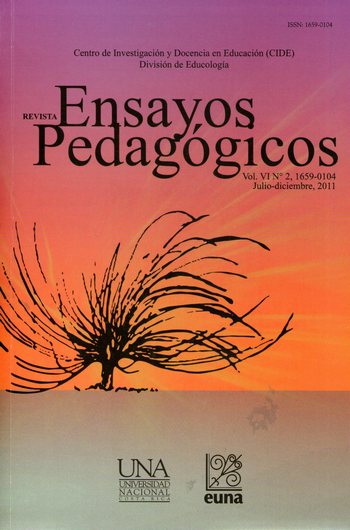Innovative Teachng Strategies: A Challenge for the Current Teacher
DOI:
https://doi.org/10.15359/rep.6-2.12Keywords:
innovative teaching strategies, learning styles, learning diversity, academic skillsAbstract
This study investigated the importance of professors to be updated in the use of trendy and innovative teaching strategies. This way, they can implement effective and analytical activities that allow students develop their academic skills. The main purpose of this article is to analyze some aspects that can affect students' learning process negatively, and mention some innovative teaching strategies to maximize their academic skills. First, the traditional and modern teaching methodologies are shown to put into evidence the necessity of a change in the educational system. Second, different learning styles are mentioned to understand the relevance of identifying the students' needs and abilities. Finally, some innovative and effective teaching strategies are suggested to help the professor change his traditional classes and visualize students as active participants in their learning process.
References
Baus, T. (2010). Los Estilos de Aprendizaje.Recuperado de URL: http://www.monografias.com/trabajos12/losestils/losestils.shtml
Díaz Barriga, F. (2003). Cognición situada y estrategias para el aprendizaje significativo.Revista Electrónica de Investigación Educativa, 5 (2).
Gálvez, J. et al. (1999). Interés por Aprender Vs. Necesidad de Aprobar. Argentina.Córdoba: Universidad de Córdoba - Facultad de Psicopedagogía.
Herrera, Gabriel (2004), Estrategias de Aprendizaje. Recuperado deURL:http://www.monografias.com/trabajos19/estrategias-aprendizaje/estrategias-aprendizaje.shtml
Ibarra, L. (2006). El Role del Profesor. Universidad de La Habana. Facultad de Psicología. Recuperado de URL: http://www.psicologia-online.com/articulos/2006/rol_profesor.shtml
Palomino, W. (2008). Teorías de Aprendizaje Significativo de David Ausubel. Recuperado de URL: http://www.monografias.com/trabajos6/apsi/apsi.shtml
Salas,M. (2009)Del Proceso de Enseñanza Aprendizaje Tradicional, al Proceso de Enseñanza Aprendizaje para la Formación de Competencias, en los Estudiantes de la Enseñanza Básica, Media Superior y Superior. La Habana: Ministerio de Ciencia, Tecnología y Medio Ambiente.
Sepulveda, F. y Rajadell, N. (2001). Los procesos formativos en el aula: Estrategias de enseñanza y aprendizaje. Recuperado de URL: http://www.upm.es/innovacion/cd/02_formacion/talleres/nuevas_met_eva/rajadellarticulo.pdf
Simpson, D. (2001). John Dewey’s Concept of the Student.Recuperado de: http://www.csse.ca/CJE/Articles/FullText/CJE26-2/CJE26-2-Simpson.pdf
Lozano, W. (2008). La Estructura Cognitiva Como Base Del Trabajo De Ausubel. Recuperado de: www.articulosinformativos.com/La_Estructura_Cognitiva_como_Base_del_Trabajo-a1156178.htm
WordPress.com. (Marzo, 2008). Aprender a enseñar teniendo en cuenta la diversidad. Recuperado de: portal.perueduca.edu.pe/basicaespecial/articulos/art01_01-09-06.pdf
Downloads
Published
How to Cite
Issue
Section
License
Ensayos Pedagógicos is subscribed to the Attribution-NonCommertial-NoDerivatives 4.0 International Creative Commons Licence, which allows both authors and readers to freely download, store, copy, and distribute the final approved publisehd version of the manuscript (post-print) as long as this is done without commercial purposes, no derivative works are generated, and the source and author are mentioned. As well, Ensayos Pedagógicos declares that authors will remain the rightful owners of the copyrights of their work in perpetuity.







